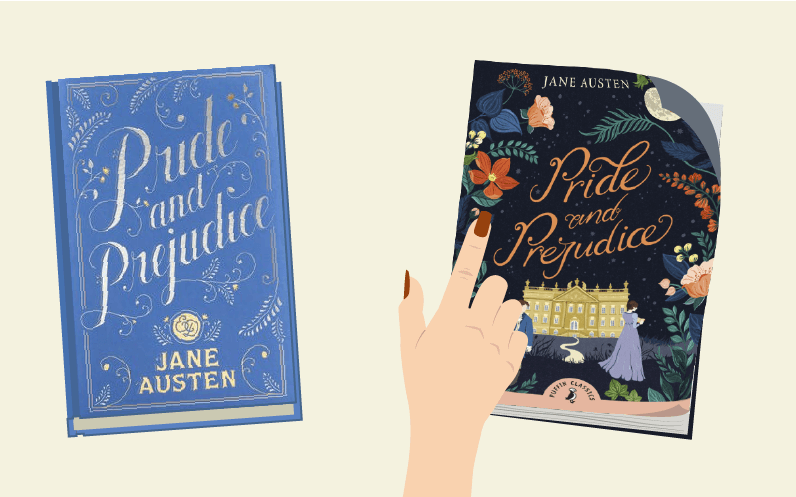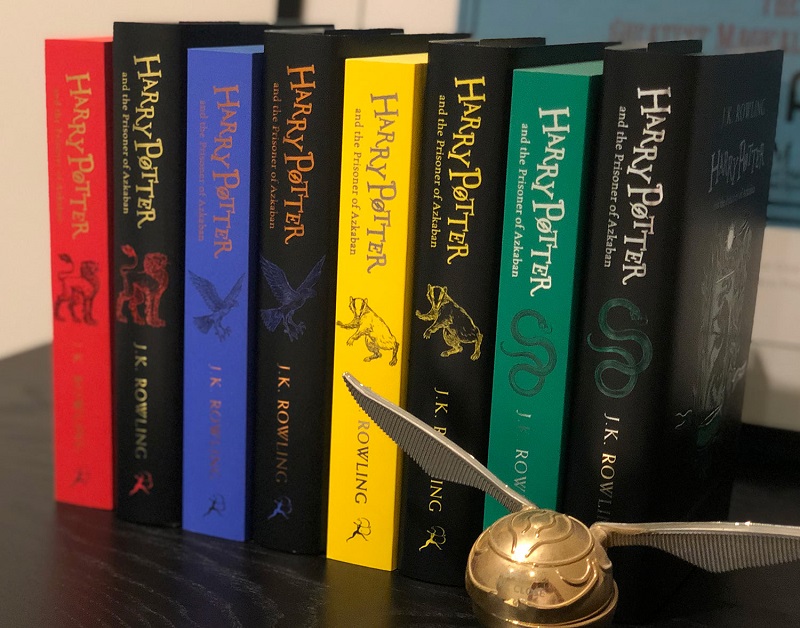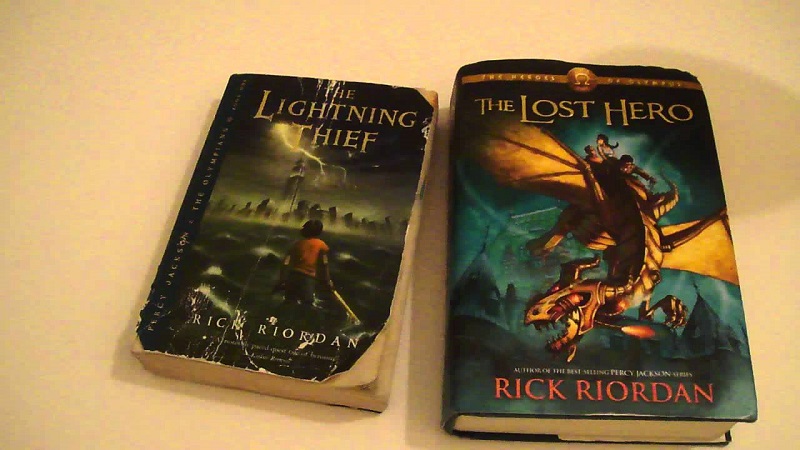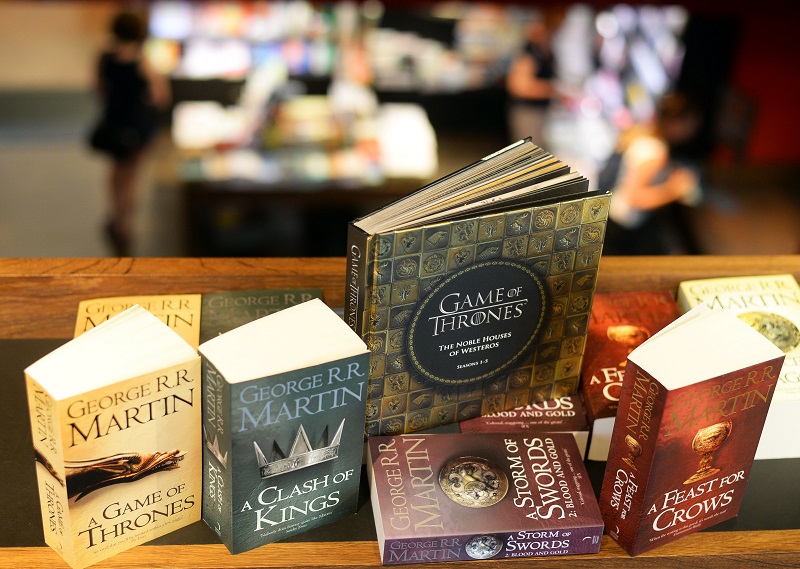Essay
Why I Prefer Paperbacks Over Hardcovers
She stands on the street looking in at the window display. As dusk shrouds the sky, thunder rumbles in the background. Reluctantly, she glances up and a slight drizzle showers her face. She looks at the window again. Stacks of books have been deliciously arranged into cascading staircases and little welcoming forts. As she examines the books on display, she suddenly notices something. Isn’t that the latest illustrated hardcover edition of Harry Potter And The Prisoner Of Azkaban? Oh! She has got to have it.
She steps inside the shop and we lose her until she returns with an armload of books. You want to cheer for her- she has bought it, you know she did. Peer closely at the stack and you realise that none of them is the Potter hardcover. They are all different paperbacks, some older than the others. Stumped? She is like the rest of us.

Now, this is not just the case with me. Most bibliophiles that I have come across are hesitant when it comes to spending their money on luxuries like hardcover books. ‘But one could buy three second-hand books in pristine condition for the same amount’- is how the brain rationalises this debate. The publishing houses cash in on the readers’ apathy by introducing only hardcover versions, at least for the first year, if they expect the book to do well. Unless the book is a much-awaited copy and one wants to read it immediately, most readers prefer to wait for the paperback versions to be released. It is only in very rare cases that the hardcover version follows the paperback since publishers are aware that it could affect their profit margins.
Then there is the third cousin of both these covers- the mass market paperback which receives the least amount of attention from the publishers. These books are smaller, the font is more compact and the paper quality is quite shallow to reduce the price of the book.
There is an element of elitism associated with hardcover books. They are expensive because of the higher quality of the raw materials used. Despite the availability of book-binding equipment, they take longer to bind. Did you know that most established reviewers don’t accept paperbacks? Most publishing houses would rather publish fewer hardcovers than more paperbacks since the profit margins in printing softcovers are lower.

(Image via Harry Potter Fan Zone)
Libraries are particularly fond of hardcovers and they make for great collectibles. After all, taking care of a hardcover is a breeze as compared to a paperback. They often come with a dust-free jacket that forms a protective envelope around the book to keep away dust, coffee spills and random external damage. The printing of a hardcover is done on acid-free paper, so the discolouration is kept at a minimum. Also, they don’t develop dark spots as much as their cheaper counterparts due to the high quality of paper used. The niggly creases that are the hallmark of paperbacks find no place in a hardcover. A hardcover is built to last.
Vishy, a blogger and an avid reader with a rather eclectic taste in books, says, “If I am collecting a book, then I prefer a hardcover unless it is too expensive. Sometimes paperback editions are more beautiful than hardcover ones- the font and the paper is better. I once wanted to own a world history book in hardcover. It was offered at a huge discount, but the bookshop couldn’t mail it to me since I was living in another city and the book was really heavy. That is the only occasion I remember feeling sad at not being able to get a hardcover edition.”
As a young reader in college with a limited students’ allowance, paperbacks always trumped any coveted hardcover. For me, quantity is as important as quality. I stored away my hardcover dreams for when I gained employment. The much-awaited twist in the tale never surfaced. With bills to pay, an occasional hardcover was alright but the staple food for the mind continued to be my trusty paperbacks. Affordability bested durability.

(Image via YouTube)
Take a moment here. Honestly, what is the big deal about a hardcover really? They are heavy to lug around. Would you take the more malleable paperback on a trip or the bulkier option? If you are reading a massive tome like Middlemarch, the hardbound version is bound to give you a tennis elbow. Yes, the leather-bound editions look elegant, but what about the paperback covers of certain books that look like artwork? Pick up the 21st anniversary edition of Kiran Nagarker’s Cuckold– it will definitely make for a collector’s item.
When books started out in the annals of history, they had stiff covers. Since they were all written by hand and then stitched together, there was no choice but to bind them between more rigid and tough covers. When the printing press finally hit the market, first the hardcovers and then eventually in 1935, paperbacks became more common and popular. It was their moment to shine.
Paperbacks garner favour with everyone, irrespective of gender, purchasing power or reading habits. Sunila Gupte, author of four children’s books, feels that hardcovers stay on the shelves while the paperbacks travel much more. She adds, “I prefer paperbacks. They are the ones that are actually read. In one day, they have moved from room to room. They are easy to borrow and to lend. They are light, comfortable to carry, to even leave behind somewhere and yet, they fill bookshelves.”
(Image via Men’s Health)
My personal library is slowly filling up with hardcovers. But only because my husband knows that unless it is the eighth Harry Potter that is published, I will not willingly shell out money for a hardcover. So every time he travels, he returns with hardcovers. Any ritual that adds books to my shelf is fantastic but I can’t help evaluating how many more books I could have bought with the price of that one hardcover. Just like Gupte, paperbacks get my vote. Not only because they are more accessible and affordable, but also because they are adulated less. A paperback is purchased in a snap while a hardcover always requires some deliberation. The underdog always has my vote and in the publishing industry, that is the paperback. At the end of the day though, a book is a book, whether it comes in the form of a hardcover or a paperback. It will be your trusted friend, irrespective of how it looks. So, should a cover really matter so much?


Pulkit Singh
Pulkit Singh is a ninja, she kids you not. When not slaying dragons or deadlines, she curates 'Blue Sunride'- a platform for non-commercial writing. Pots of tea, book stacks and early mornings reinforce her belief in 'Life'. An ex-Googler, her articles have been published in Savvy, Society, Jade, Deccan Herald and Spark amongst others.
Read her articles here.




I absolutely agree. Often I get a book out of the library, decide I want to own it, and wait for the paperback to come out.